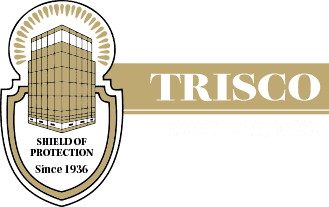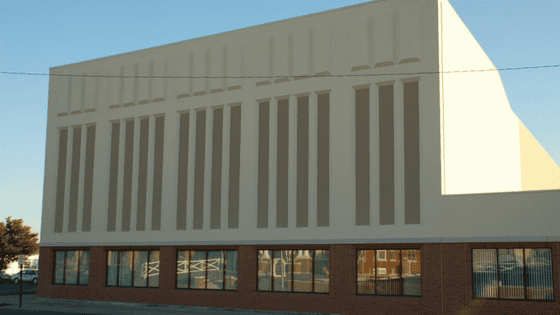The purpose of this article is to try to simplify something that confuses many people: EIFS.
EIFS is an acronym for “Exterior Insulation and Finish System.” Many people refer to it as “Dryvit” or mistakenly as “stucco.” Dryvit Systems, Inc. is a manufacturer of EIFS products. This is a generic trademark descriptor, similar to Kleenex (a manufacturer of tissues.) Often times, these terms become synonymous. However, there are many other quality EIFS manufacturers, such as StoCorp, BASF, and Parex.
Unlike traditional stucco, which consists of lime, sand, and Portland cement or other binders, EIFS is comprised of several layers of materials. When combined, these layers form a continuous insulation system with a hard and durable finish surface.
The photograph to the right shows a sample piece of the most basic layers in an EIFS wall:

- The substrate (fiberglass mat gypsum sheathing in this example)
- The water-resistive barrier
- The insulation board
- The water-resistant base coat with embedded reinforcing mesh
- The textured finish coat
When installed, EIFS will usually appear like a piece of foam board with a hard textured surface on one side. However, it is much more complex than that.
In the past, many architects and installers viewed EIFS as a barrier system, meaning they were not designed to allow water to enter. Therefore, no cavity drainage or moisture management mechanisms were installed within the system, and if they were – they were often done poorly or incorrectly. This led to failures in many systems. Today, the industry acknowledges that moisture will inevitably enter an EIFS wall and most manufacturers have installation details that allow the evacuation of water from behind the system.
The old systems? Most need attention. Unfortunately, many people have a negative opinion of EIFS, and it’s simply because they don’t understand it. This misunderstanding tends to lead people down the path of removal and replacement rather than restoration and rejuvenation.
Many of the manufacturers have restoration programs for dealing with existing and aging EIFS-clad buildings in a much more cost-effective manner than replacement. Restoring or rejuvenating an existing system can dramatically increase the service life of the system as well as the structure, while providing the opportunity to change the appearance.
If you have a structure clad with EIFS and want to understand it better, please contact our sister company, Trisco Construction Services. Their EIFS experts can conduct a simple walk around to identify weaknesses and items for you to monitor to keep your EIFS system performing as it should.

